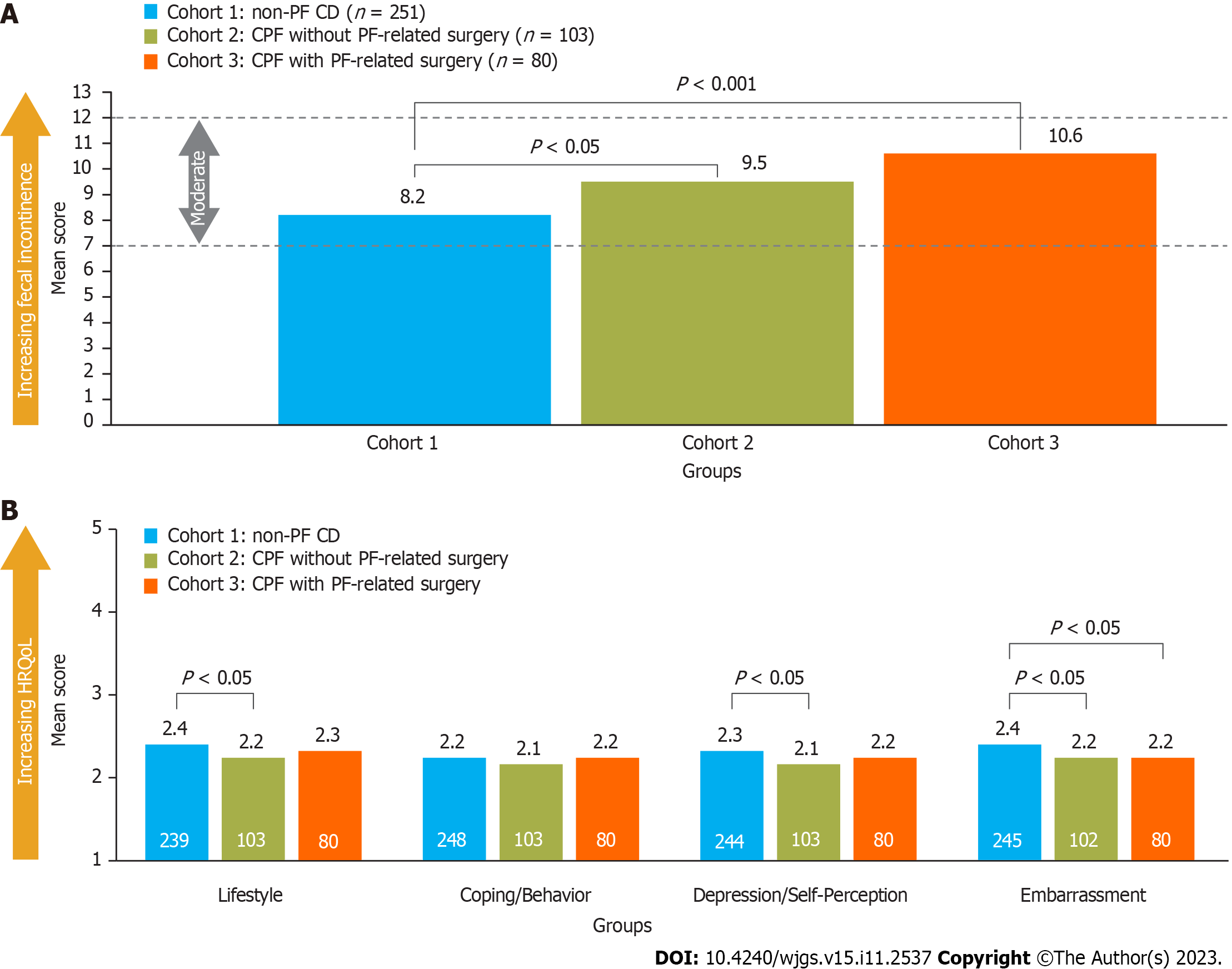Copyright
©The Author(s) 2023.
World J Gastrointest Surg. Nov 27, 2023; 15(11): 2537-2552
Published online Nov 27, 2023. doi: 10.4240/wjgs.v15.i11.2537
Published online Nov 27, 2023. doi: 10.4240/wjgs.v15.i11.2537
Figure 3 Comparison of Revised Faecal Incontinence Scale and Fecal Incontinence Quality of Life scores in patients with Crohn’s disease, with and without perianal fistula.
A: Revised Faecal Incontinence Scale scores; B: Fecal Incontinence Quality of Life scores. Scoring key for RFIS (range 0-20): No fecal incontinence = 0 points, very mild ≤ 3 points, mild = 4-6 points, moderate = 7-12 points, severe ≥ 13 points; scores for each item were summed and the mean taken, with lower scores indicating less fecal incontinence. Scoring key for FIQL (range 1-5): Lower scores indicating lower health-related quality of life; the minimally important difference is 1.1-1.2 points per subscale. Numbers inside the bars present the number of patients. CD: Crohn’s disease; CPF: Crohn’s perianal fistulas; FIQL: Fecal Incontinence Quality of life; HRQoL: Health-related quality of life; PF: Perianal fistulas; RFIS: Revised Faecal Incontinence Scale.
- Citation: Karki C, Athavale A, Abilash V, Hantsbarger G, Geransar P, Lee K, Milicevic S, Perovic M, Raven L, Sajak-Szczerba M, Silber A, Yoon A, Tozer P. Multi-national observational study to assess quality of life and treatment preferences in patients with Crohn’s perianal fistulas. World J Gastrointest Surg 2023; 15(11): 2537-2552
- URL: https://www.wjgnet.com/1948-9366/full/v15/i11/2537.htm
- DOI: https://dx.doi.org/10.4240/wjgs.v15.i11.2537









